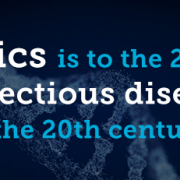New genomics initiatives coming to primary care
New initiatives launching next month will focus on improving patient outcomes in relation to depression, high cholesterol and asthma
Two programmes introducing genomic testing in primary care settings are being rolled out in the east of England.
The projects, which go live in April, are applying personalised medicine approaches to common conditions such as depression and asthma, aiming to improve patient outcomes.
The Eastern Academic Health Science Network (Eastern AHSN) is working with East of England Genomic Medicine Centre to support the initiatives as part of its Primary Care Accelerator.
“We are excited about this work, which will see more personalised medicine brought into the family surgery. This could save lives and improve quality of lives, helping people live with conditions with fewer side-effects,” Eastern AHSN programme lead Victoria Corbishley told the Daily Mail.
“This will also save money in treatment costs and reduce lost school and work days.”
Both projects are based around pharmacogenetics: using information from the patient’s genome to predict what medicines will be most effective for that individual.
This approach has the potential to offer several advantages. The patient suffers fewer adverse effects and gets the most effective treatment sooner than with a standardised approach. The NHS also benefits from reduced spending on repeat appointments and drugs that are wasted because they are ineffective and unsuitable.
Tackling depression and high cholesterol
The first project focuses on improving prescribing for depression and familial hypercholesterolemia, an inherited high cholesterol condition. Ten GP practices in the Cambridgeshire and Peterborough areas are taking part, led by Dr Alina Roser, a practising GP in the Huntingdon area with a background in genomic medicine.
Antidepressants are believed to be an area where better prescribing can have a significant impact. By reducing adverse effects, patent adherence to drug regimens is improved, waste is reduced and fewer clinic visits are required to re-evaluate the medication.
“It will improve the safety and effectiveness of medicines, moving medicine into a new era away from the one-size-fits-all, trial-and-error approach we currently use,” Dr Roser told the Express.
“For example, it can take up to four months to get the right treatment for depression, and sometimes patients tend to lose hope during this time, putting them at higher risk of suicide. This would mean we could quickly find the drug they will respond to best.”
The other focus of the project, familial hypercholesterolemia, is a genetic condition where LDL cholesterol is not removed from the blood and so builds up in the body. If untreated, this significantly increases the risk of a heart attack, but if diagnosed effective treatment is available.
Around 200 patients are likely to benefit directly, but the project aims to help many more by raising awareness across all 530 GP practices in the region.
Improving asthma outcomes
The second project is being led by North-East Essex CCG and will focus on children with uncontrolled asthma.
Children aged over four years whose asthma is not responding to standard treatments will be tested for a recessive variant of the beta-2 receptor gene. In carriers of this variant, steroid treatments are less effective and may even worsen symptoms.
Children found to carry the variant will be able to have their treatment altered accordingly, and get their asthma controlled more quickly, with fewer hospital visits and missed school days. Around 4,000 children across Suffolk and north-east Essex will be eligible for the test.
To learn more about the current and future impacts of genomics in primary care, visit our Genomics in Primary Care page.









